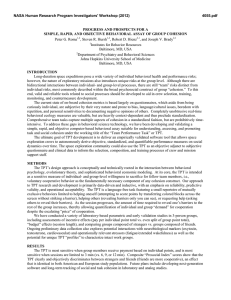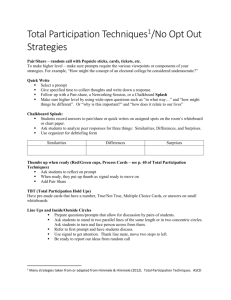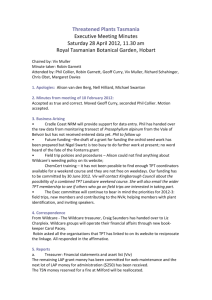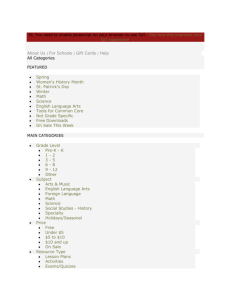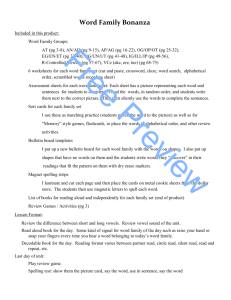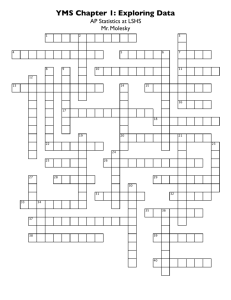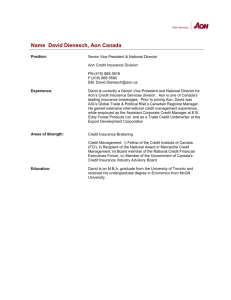List Of project management Exercises
advertisement
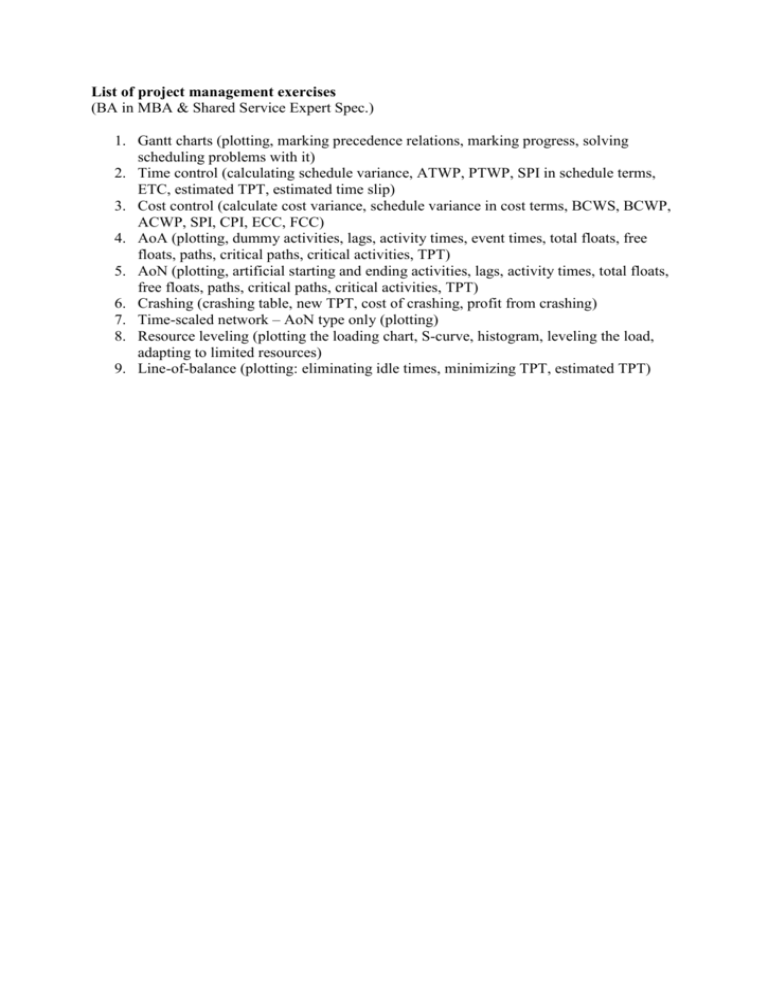
List of project management exercises (BA in MBA & Shared Service Expert Spec.) 1. Gantt charts (plotting, marking precedence relations, marking progress, solving scheduling problems with it) 2. Time control (calculating schedule variance, ATWP, PTWP, SPI in schedule terms, ETC, estimated TPT, estimated time slip) 3. Cost control (calculate cost variance, schedule variance in cost terms, BCWS, BCWP, ACWP, SPI, CPI, ECC, FCC) 4. AoA (plotting, dummy activities, lags, activity times, event times, total floats, free floats, paths, critical paths, critical activities, TPT) 5. AoN (plotting, artificial starting and ending activities, lags, activity times, total floats, free floats, paths, critical paths, critical activities, TPT) 6. Crashing (crashing table, new TPT, cost of crashing, profit from crashing) 7. Time-scaled network – AoN type only (plotting) 8. Resource leveling (plotting the loading chart, S-curve, histogram, leveling the load, adapting to limited resources) 9. Line-of-balance (plotting: eliminating idle times, minimizing TPT, estimated TPT) SAMPLE EXERCISES (for more sample exercises check the sample exam, the slides and the crashing1 file at http://oktato.econ.unideb.hu/kunandras/BAINMBA/PM_BA.htm) Gantt charts There are two workers XX and YY. They are identical (both of them can do every task with the same efficiency). There is the AoN diagram of the project (durations and relations are given only): b d 4 1 a f 3 3 c e 3 1 a) Plot a Gantt chart and calculate the shortest possible TPT for a project with the above data. b) Mark the dependency relations. c) Create a tracking Gantt chart for the above project if after 8 days we have the following progress information: a is 100%, b is 75%, c is 66% Time control Planned total project time (PTPT) of 15 days. After 9 days they had to finish 3 activities completely. From the actual data ’a’ (planned duration: 4) is 50%, ’b’ is ready (planned duration: 2), ’c’ (planned duration: 3) is 33%. Activities are linearly related. a) What is the planned time to complete (PTC) the project? b) Calculate the schedule performance index (SPI). c) What is the estimated time to complete (ETC) the project? d) What is the estimated time slip for the whole project? Cost control There is a project with the following planned data: Activity Duration Daily cost of the label (day) activity a 2 10 b 1 20 c 4 20 d 3 30 e 2 10 a b d e c a) Calculate the BCWS data for the whole project (activities placed to their ESTs)! After 5 days, – – – – – the monitoring system provides the following information: Activity ‘a’ is completed Activity ‘b’ is completed Activity ‘c’ is 50% completed Activity ‘d’ and ’e’ are 0% completed (not even started) Money spent: 100 b) Calculate BCWS, BCWP and ACWP for the first 5 days c) Calculate CPI, SPI, BCC, ECC and FCC Time-scaled network – AoN type The project manager has the following data: Activity label a b c d e f Duration (days) 2 6 4 3 2 2 Immediate predecessor a b d c, e a) Plot an AoN type time scaled network for the project with all the necessary data. b) Compute the TPT Resource leveling a) Create a loading chart (with histogram) for the following project, using the ESTs for placing every activity. Activity label a b c d e f Duration (days) 2 6 2 3 2 2 Resource use per day 1 2 3 4 4 1 b) Plot a loading bar chart with a histogram. c) Plot an S curve for the project d) Modify the loading chart if there is a resource limit at 5. Immediate predecessor a a b c d Line-of-balance There is a project of planting 6 identical trees in a botanical garden. Planting a tree requires 4 steps of work (each done by a different person): – digging: 10 mins – prepare the hole for the tree with special nutrients: 5 mins – placing the tree into the hole: 5 mins – tidy up the surroundings of the tree: 15 mins a) Plot a LoB chart. Follower worker can start working on a given unit of work immediately after the predecessor team finished. Calculate the TPT. b) Redesign the LoB chart to eliminate idle time of teams increasing the TPT with only the possible minimum.

